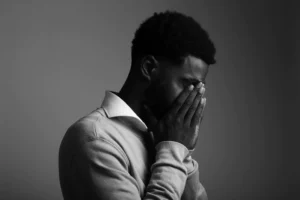When Karen Swallow Prior was a child, church wasn’t a place that she associated with belonging, even though she was immersed in Christian culture. Books, on the other hand, were her refuge, a place where she came alive, an escape from the boredom of serving God.
Karen eventually drifted from God and pursued academia. However, she says that in graduate school, she eventually “grew to understand how inextricably connected books are to God, who is the Word and the author of all words.” It was also around this time that Karen embraced pro-life activism as a result of watching The Silent Scream, a video showing an early abortion taking place via ultrasound. Karen is now an English professor at Liberty University and the author of two books, Booked: Literature in the Soul of Me and Fierce Convictions—The Extraordinary Life of Hannah More: Poet, Reformer, Abolitionist.
In this interview, Karen discusses how Christians should think about challenging art and literature, whether Christian overachievers should go to Christian colleges, “trigger warnings,” social media, and what Christian abolitionists can teach us about the pro-life movement.
- You’ve steeped yourself in the life of the 18th century writer and abolitionist Hannah More. What does More’s work have to teach those of us who have strong pro-life convictions?
The pressing issue within Hannah More’s day was slavery. More was among the leading evangelicals who helped lead the campaign to end Great Britain‘s slave trade. The parallels between that battle and our fight today on behalf of unborn children are striking. Both abortion and slavery were or are tightly woven into the fabric of society (economically, politically and socially), making it difficult for those living in the midst of it to see the evil for what it is, or to envision any way for society to function without it. Helping people to see something so institutionalized for the evil it is is the first challenge.
The second challenge is helping people to see a way beyond, to imagine a world in which something as widespread and accepted as slavery or abortion is eradicated. Our job as Christians is to help people see both the reality and the possibilities. And, of course, the only way to do that is to bring the Gospel to bear on the minds and hearts of people. The answer remains the same. But as the issues change, so too do our opportunities.
It’s helpful to consider that More and her friends did not take a “single issue” approach. Nor did they limit themselves to working only with those who shared their theological beliefs. Rather, these Christians joined forces with others in common cause as co-belligerents in the culture war of their day. And while More fought to end the slave trade, she helped to transform culture in other lasting ways: by opening Sunday Schools where the poor were taught reading, Bible lessons and employment skills; by challenging the wealthy and fashionable to embrace authentic faith rather than merely nominal Christianity; and by “making goodness fashionable” across society in hopes of seeing people’s lives flourish as the Gospel was lived out.
- If you had a brilliant son or a daughter who was going into college, and they could choose between an Ivy League university and a Christian college with a solid academic program, what would you recommend?
This is an excellent question. I would certainly not propose a one-size-fits-all answer. Wherever a student goes, that student bears the responsibility to make the most of whatever opportunities the educational environment provides.
In my own case, I had an entirely secular education from kindergarten through my Ph.D. When I entered Christian education, I had to learn from scratch how to integrate a biblical worldview into my discipline. This is why I often tell my students that because they are studying a subject within a Christian worldview, they are actually learning more than I was at the same stage of my education. Students in a Christian college or university have to gain the same knowledge and skills as students at a secular institution. But beyond that, they gain a biblical, critical lens through which to view and apply that knowledge and skill holistically and faithfully.
A student can honor God (or not) in a variety of educational settings. A student can receive a quality education at a modest school, just as a student can make poor decisions that lead to a bad experience at an elite institution. Ultimately, students should choose a college wisely, taking into consideration their calling, career goals, financial circumstances and their fit with the school environment. And even more important than what college a student chooses — or even the decision whether to go to college at all— is to serve God as you find and fulfill His calling on your life.
- You’ve written about the impact of college campuses using “trigger warnings” to alert students to potentially discomforting material in the classes they take. Linguist Benjamin Lee Whorf said, “Language shapes the way we think, and determines what we can think about. “ How do trigger warnings shape the way students think and determine what they can think about?
It is important, of course, to acknowledge that trigger warnings originated in the context of serious trauma, which can have real and continuing effects on victims. The wilderness of the internet frontier — where so much information is so readily available to so many people — has popularized trigger warnings even in places where they shouldn’t be expected, including educational settings. The very existence of trigger warnings undoubtedly shapes not only our ideas about the content presented but, more subtly, how we think about ideas as ideas. For example, do we think of ideas as exciting and spurring growth? Or do we think of them as dangerous and threatening? The implicit message of a trigger warning outside the narrow, specific context of recovery from actual trauma is that challenging or uncomfortable ideas are something we need to be protected from.
Trigger warnings in the classroom erode the trust and community that form the basis of genuine education. Education is a communal enterprise, one that relies on both relationship and risk. A recent feature story at The Atlantic points out, in fact, that not only is this “coddling” of the mind bad for education, but it’s bad for mental health, too. Christians more than anyone else can understand, I think, the ill effects coddling has for our spiritual health as well.
- Along those same lines, I have to admit that, as a freshman at a secular college, I refused to read certain sexually explicit, classic short stories for an English class. In retrospect, I’m not sure if that was the right decision. How would you suggest that Christian college students make the call about what to read in light of the scriptural admonition to “[f]ix [their] thoughts on what is true, and honorable, and right, and pure, and lovely, and admirable” (Philippians 4:8, NLT)?
This is certainly a tricky but important issue. This passage from Philippians is, in fact, one of my favorite guides in navigating these waters. I would argue that Christians who resist challenging works of art and literature place too little emphasis on the “true” and “admirable” qualities extolled here.
A depiction of life or character that is overly sweet, innocent or sentimental is neither true nor admirable. Furthermore, works that do not pass the test of time or are not widely praised by those who know the field fail to be (in the words of the King James translation) “of good report. ” Often, even more important than the content of a work (what it contains) is its form (how the content is depicted or treated). For example, the depictions of adultery and suicide in Leo Tolstoy’s Anna Karenina are agonizing, not celebratory. When I first began teaching English at Liberty University, I knew that some of my students would have concerns similar to the ones you had as a freshman. So I developed a lecture on the biblical basis for the study of literature and would spend the first few days of classes discussing this important topic. You can find this lecture here.
Sometimes our objections on principle overlook more important principles — for example, the principle of getting to know our neighbors (even the unseemly ones) so that we can better love them, or the principle of maturing in such a way that allows us to bring all things under Christ’s subjection, or the principle demonstrated by Paul in Acts 17 when he used his knowledge of pagan culture to point people to Christ and bring some to a saving knowledge of Him.
Good art glorifies God. But too often, contemporary Christianity prefers the comfort of kitsch rather than the demands made on us by good art.
- I live in a city full of people with post-graduate degrees, yet when I get on the metro with these folks in their suits and high heels, we’re scrolling through social mediarather than reading books. How do you think it affects us as a society to be putting down books in exchange for the abbreviated world of social media?
The shift we are going through now — the shift from print culture to digital culture — may be as dramatic as the one that took us into the print age in the seventeenth century. I know I am experiencing a change in my own attention span, reading habits, and thought structure as I, too, spend more time reading short bursts on the internet and social media and less time immersed in books. To some extent, this is unavoidable given the nature of my calling. At the same time, I need to be a wise and intentional steward of my gifts, time, and mind. The digital age offers us a vast breadth of knowledge—but seemingly at the expense of depth of knowledge, and perhaps wisdom.
We need not be afraid of this change. But we do need to be mindful, wise, and circumspect. As Christians, we are situated within an interesting time with unique opportunities; we should be conversant and engaged in the culture as it is—yet, at the same time, as a Word-centered people, we have a special calling to preserve and perpetuate a culture of the Word (and words). As everything becomes move abbreviated, we can offer a refreshing alternative culture, one rooted in the presence and immanence of the Incarnation and the everlastingness of the eternal perspective.
You can keep up with Karen on Twitter @LoveLifeLitGod.












